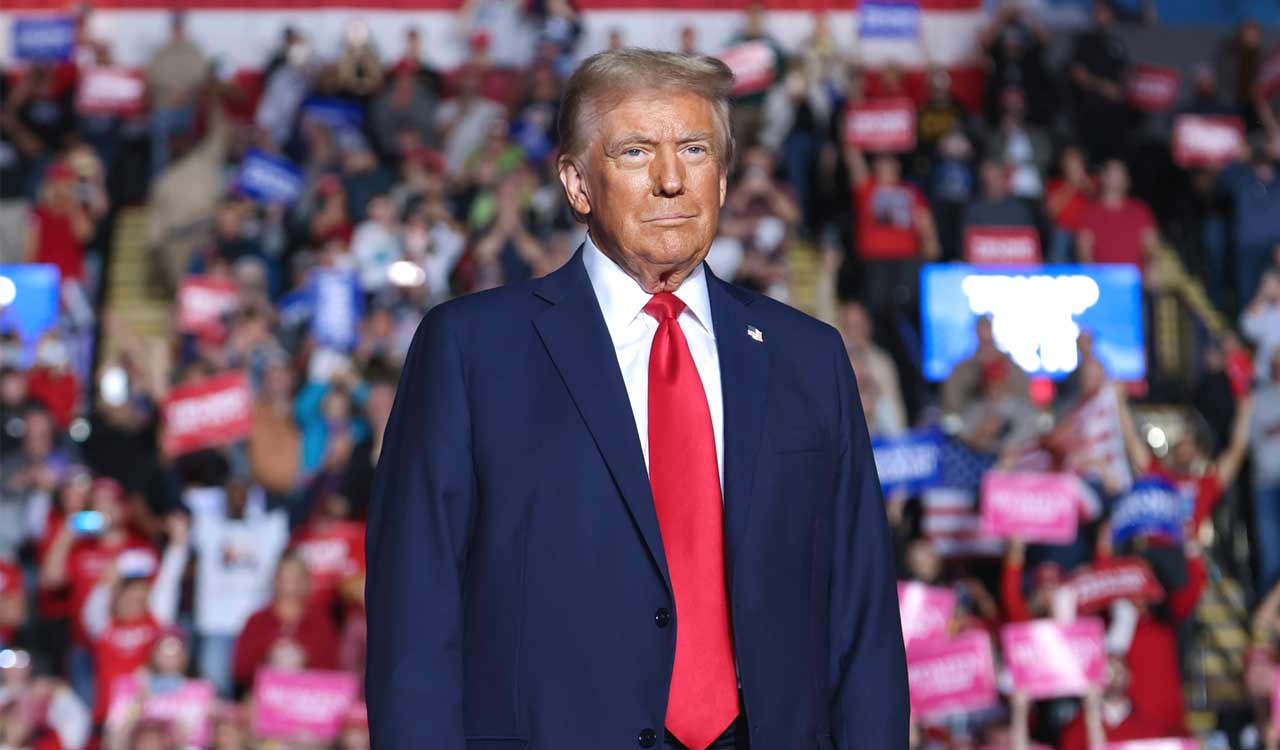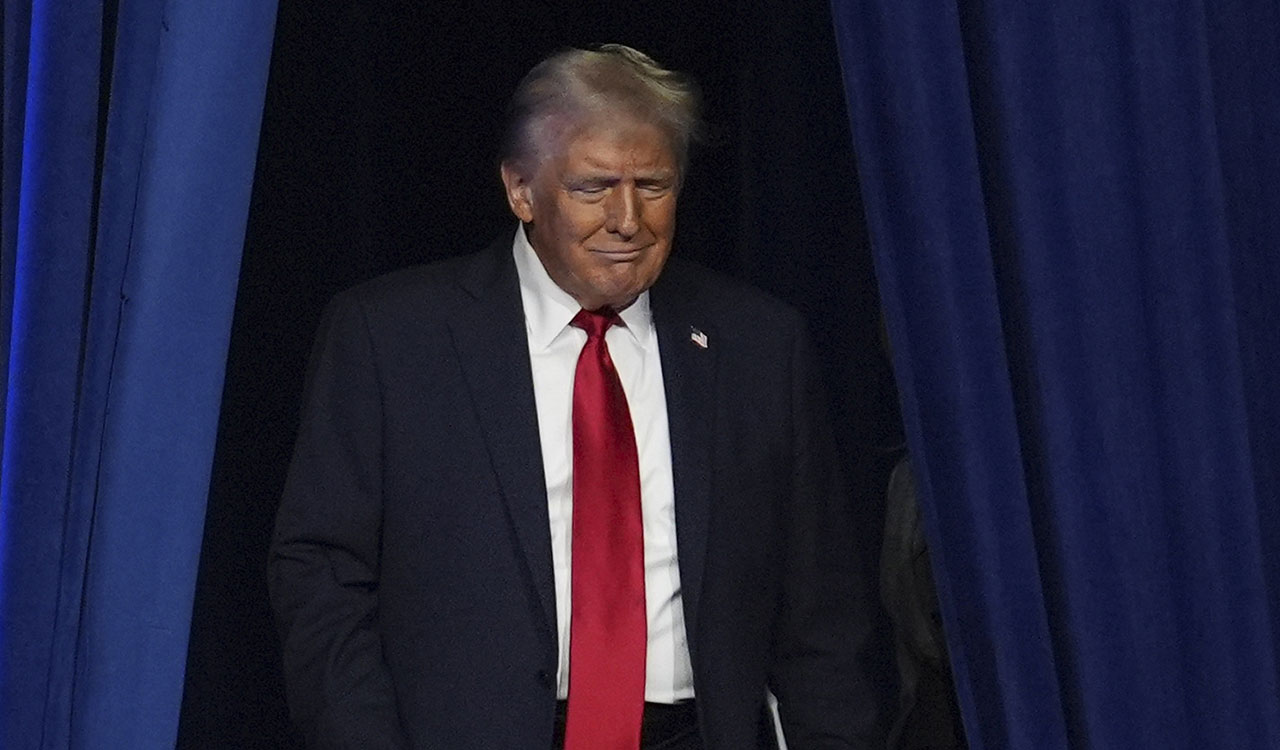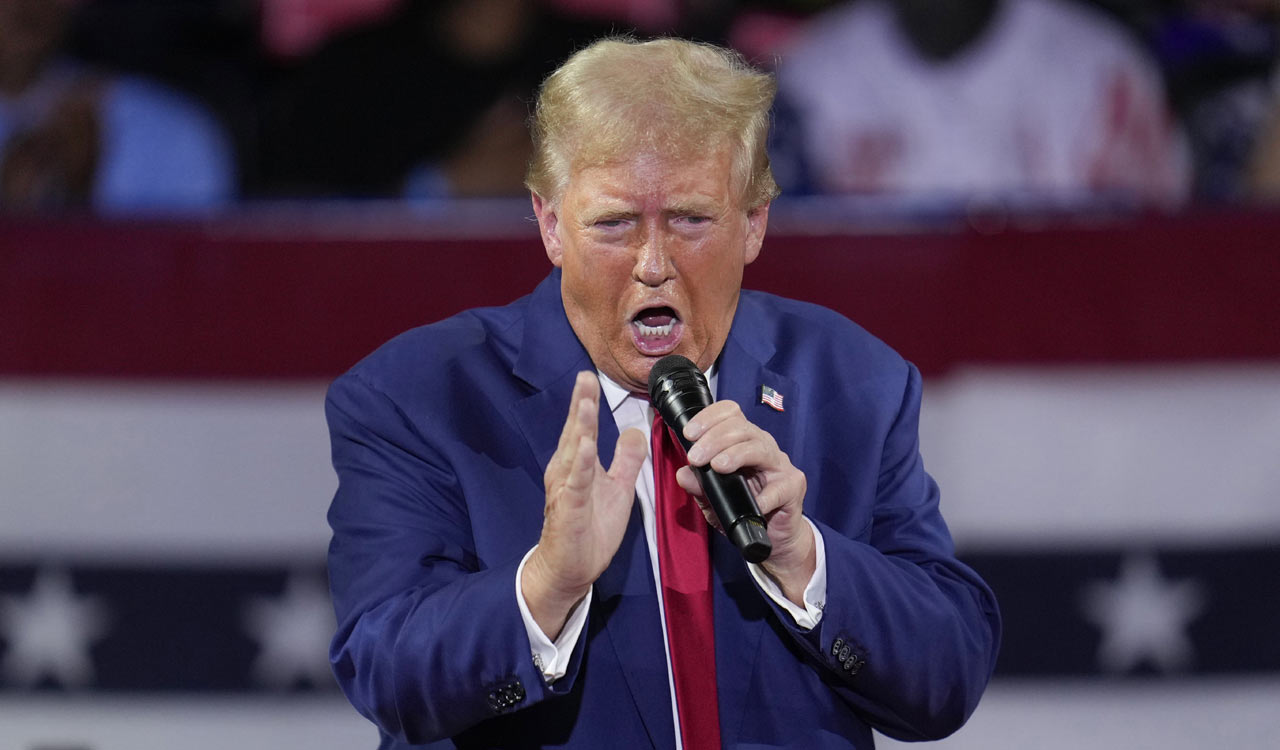Rewind: Telugu diaspora as soft power
At a time when migration and its influence on the US are leading the political debate surrounding Presidential election, it becomes interesting to see how the Telugu community votes
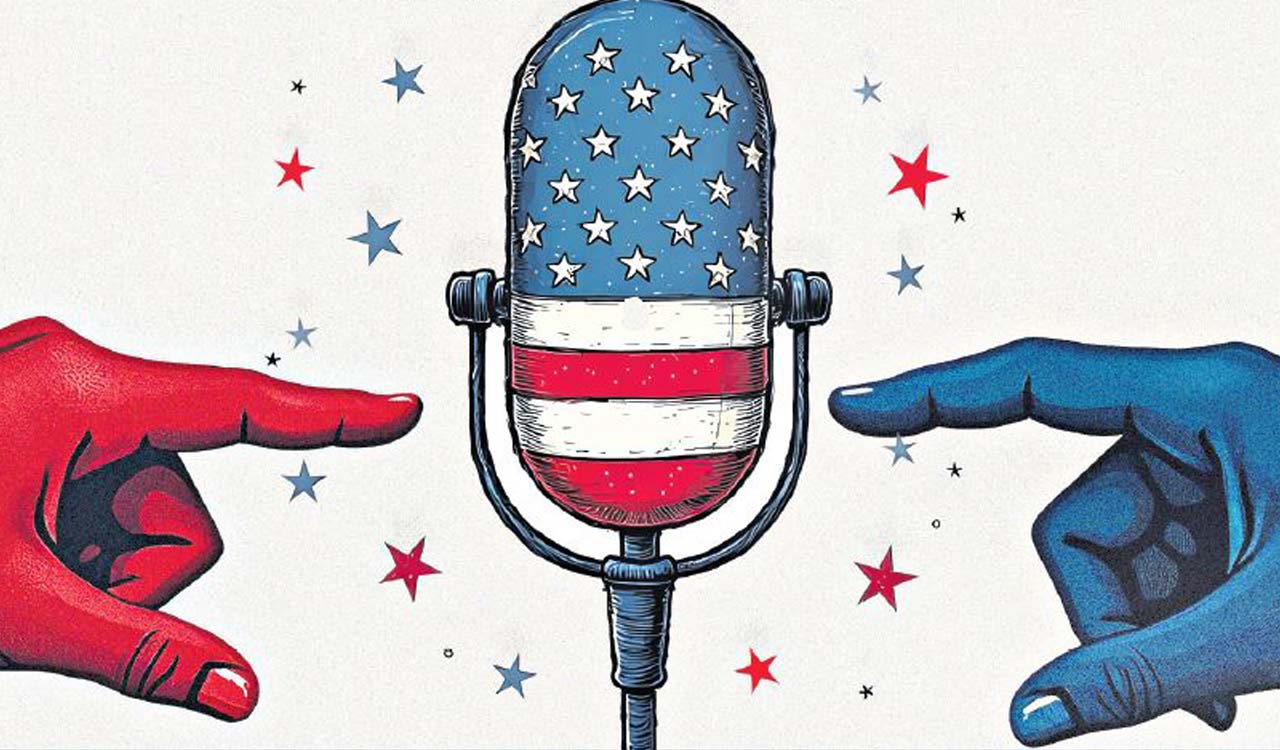
By Dr Akhil Kumar, Anudeep Gujjeti
Indian Americans represent a substantial voting bloc and hold the potential to influence the election outcome in the United States, particularly at local levels. Both Presidential candidates—Democratic nominee Kamala Harris and Republican nominee former President Donald Trump — are making significant efforts to engage with this segment. With a population of more than 5 million, Indian-Americans constitute approximately 1.5% of the US population from foreign origin. As of 2022, the US Census Bureau reports that around 46% of Indian Americans are eligible to vote—a notable figure compared with other ethnic groups.
However, an often-overlooked nuance in discussions about the Indian diaspora is its diversity. While the diaspora is frequently regarded as a unified entity with shared national interests, it comprises residents from various linguistic, cultural and political backgrounds, representing different States across India. These diverse political perspectives, shaped by their regional origins, often influence their engagement in politics in the country they reside in. One such influential community is the Telugu-speaking population, which plays a significant role within this heterogeneous diaspora.
Increasing Influence
The Telugu diaspora holds a significant presence in States such as Virginia, Texas, California, Georgia and Illinois. In recent times, the Telugu-speaking population in the US has quadrupled, rising from 3.2 lakh in 2016 to 12.3 lakh this year. Telugu is now the 11th most spoken language out of 350 languages in the US and the third most spoken Indian language thereafter Hindi and Gujarati. According to a Statistical Atlas of the USA report based on US Census Bureau data, the Telugu-speaking population includes fourth-generation immigrants to the students who arrive in the US every year (60,000-70,000) to pursue higher studies.
Telugu diaspora holds a particularly significant presence in States such as Virginia, Texas, California, Georgia and Illinois. The Telugu-speaking population in the US has quadrupled — from 3.2 lakh in 2016 to 12.3 lakh this year
Among all the States in the US, California hosts the largest Telugu-speaking population followed by Texas (1.5 lakh), and New Jersey (1.1 lakh). Interestingly, Santa Clara County in the city of California, permitted voters registration for mail-in voting in six Indian languages, including Telugu, which appeared on the ballot boxes in the US 2020 Presidential elections. In fact, in the recently held student union elections at the University of South Florida, G Suryakant Prasad, who hails from Vijayawada in Andhra Pradesh, was elected as president.
In his 1975 work Andhras in the United States of America published in Telugu Vani: Voice of the Telugu People, P Venugopala Rao categorised Telugus residing in the US into four distinct groups: students pursuing higher education, individuals who obtained postgraduate degrees in the US and settled as permanent residents, professionals who entered the US for employment, and dependents, who constitute a significant portion of the Telugu-speaking population.
CSHN Murthy in Mapping Media, Cultural Ties, and Political Economy with Homeland noted the substantial impact the Telugu film and television industry has had on overseas audiences, particularly in the US, where Telugu films generate significant revenue. Radio Surabhi, a 24-hour Telugu radio station broadcasting on HD frequency 104.9, has gained widespread popularity within the diaspora, amassing over 50,000 followers and becoming a new cultural sensation for the community in America. The channel was launched in 2018 and transitioned into a 24/7 operation in 2022. It is the brainchild of Rajeswari Udayagiri, an IT professional. The slogan, “Ae bidda idi mana America lo Telugodi adda, Radio Surabhi America lo Telugu nestham” (This is your Telugu gathering spot in America, Radio Surabhi, your Telugu friend in America), echoes throughout the streets of Dallas, which has a significant Telugu-speaking population.
In March 2021, Joel Reifman, former US Consul General, Hyderabad, said one in four Telugu families had an American connection. The significant number of visa applications originating from Hyderabad, along with the growing interest among Telugu families in securing matrimonial alliances with individuals settled in the US —often referred to as ‘America sambandham’,is as clear evidence of the high rate of Telugu migration to the US.
Preserving Identity
In recent years, numerous Telugu-speaking organisations have intensified their efforts to preserve and strengthen the cultural identity and unity of the community. These initiatives include promoting teaching and learning of the Telugu language to ensure its continued use among younger generations. Additionally, these organisations are working towards the construction of temples, providing a space for spiritual and cultural gatherings.
Telugu is now the 11th most spoken language out of 350 languages in the US and the third most spoken Indian language thereafter Hindi and Gujarati
They also actively organise and celebrate traditional Telugu festivals such as Bonalu, Bathukamma and Sankranti, fostering a deeper connection to their heritage and promoting cultural continuity within the diaspora. The growing influence of Telugus can be gauged from the fact that in 2022, Texas Governor Greg Abbott declared April 2 as Telugu Language and Heritage Day in the State. In recent times, Telangana’s floral festival Bathukamma has received official recognition as ‘Festival of Life’ in various cities of the US.
Sobering Reality
However, beneath the narrative of success and opportunity that often characterises the Indian American diaspora in the US lies a more sobering reality, marked by the persistent threat of gun violence and the increasing number of shootings. These dangers weigh heavily on the minds of Indian parents and prospective students. Yet, the allure of a promising and prosperous future eclipses concerns for personal safety.
Among all the States in the US, California hosts the largest Telugu-speaking population followed by Texas (1.5 lakh), and New Jersey (1.1 lakh)
In the domain of international relations, the post-Cold War years had a huge impact on the political and economic milieu of several nations, marked by the increasing involvement of non-state civic actors on a global scale which can be attributed to several factors. First, the global expansion of democratic governance created more opportunities for civic engagement. Second, the rise of interconnectedness, driven by advancements in communication technologies, revolutionised the way people and organisations across borders interacted. Third, globalisation facilitated the growth of transnational and multinational civic activities, allowing non-state actors to operate beyond national boundaries. Finally, the wider dissemination of education and the resulting increase in public awareness empowered individuals and groups to participate more actively in civic and political spheres.
Traditional diplomacy has undergone significant changes as interactions between states are no longer confined to official government channels. Instead, they now occur through an expansive and growing network of civil society organisations. Despite this shift, the state remains the primary facilitator and executor of foreign policy, maintaining its central role in the formal diplomatic process.
While diaspora communities may play a minor role for smaller countries, for nations like India and China, with large populations dispersed across the globe, these communities serve as a crucial source of soft power and they become the cultural ambassadors of their respective countries. They act as conduits for transmitting cultural, economic and political values from their homeland to the countries they reside in, while simultaneously engaging in the political processes of both nations. Additionally, these groups are often afforded special recognition in host countries due to their shared sense of cultural distinctiveness, which allows them to be viewed as a cohesive entity.
Politicians’ Preferred
In recent times, the Telugu-speaking population in the US has gained significant political attention, both in the US and in India. This community, now recognised for its economic influence and political clout, has become a key demographic for politicians seeking support. In the midst of the Indian election season this summer, several political leaders travelled abroad, making deliberate efforts to connect with the diaspora. These interactions reflect the diaspora’s growing role in shaping political narratives and decisions, both in India and beyond.
Having established a strong presence in Silicon Valley, the Telugu community in the US is now beginning to make significant inroads into US politics and policymaking
Having established a strong presence in Silicon Valley, the Telugu community in the US is now beginning to make significant inroads into US politics and policy making. This shift reflects a broader ambition within the community to not only contribute to the economy but also influence political discourse and governance in the country they currently reside.
Aruna Miller, born in Hyderabad and a member of the Democratic Party, made history by becoming the first Indian American to serve as Lieutenant Governor of Maryland. Her family, hailing from Ventrapragada in Pedaparupudimandal of Krishna district in Andhra Pradesh, immigrated to the US when she was just eight years old. Similarly, Dilip Tunki, a resident of Johns Creek, Georgia, and a native of Hyderabad, is serving as a city council member. His proactive involvement in community initiatives led to the organisation of Diwali celebrations in Johns Creek for the first time. Paramesh Bob Erramilli, a Hyderabad-based pilot, was also a council member from Fulton County in Johns Creek City.
Chivukula Upendra, an electrical engineer from Nellore district of Andhra Pradesh, served as a Democratic legislator from 2002 to 2014, and played a crucial role in shaping policy. Narender Reddy, a prominent figure within the Republican Party in Georgia, hails from Nalgonda in Telangana. Although he ran as a Republican candidate and was not successful in his campaign, he has emerged as an influential voice among Republicans in Georgia, actively participating in discussions and initiatives related to regional transportation and other community matters. Bangar R Reddy Aloori from Jajireddygudem in Suryapet district of Telangana also ran as a Democratic candidate although he was unsuccessful.
As Usha Chilukuri, wife of JD Vance, who is the Vice Presidential running mate of Donald Trump, enters the political arena, it underscores the increasing influence of the Telugu-speaking community in US politics. This emergence reflects a broader trend of heightened political engagement among individuals of Indian origin, particularly those from the Telugu diaspora.
The growing representation of Telugu speakers in political positions not only enriches the diversity of American political discourse but also brings unique perspectives and experiences to the forefront. As more individuals from this community seek public office, they are likely to advocate for issues pertinent to both their local constituencies and communities of origin. This dual engagement can lead to stronger advocacy for policies that address the needs of the diaspora, such as immigration reform, educational initiatives and cultural recognition. At a time when migration and its influence on the US are leading the political debate surrounding the Presidential election, it becomes interesting to see how the Telugu diaspora votes, either collectively or otherwise.
Waves of Hope
When legendary producer D MadhusudhanRao made America Abbayi in the late 1980s, it reflected the early wave of Telugu migration to the US, especially among doctors. The film’s central character, a doctor, symbolised the aspirations of that era — where the American dream was largely tied to the medical profession and a stable, prestigious career abroad.
While many Telugus have traditionally migrated to the US for higher education or to secure white-collar employment, an increasing number are now aspiring to enter the political arena
Fast forward to the millennial generation in the early 2000s, and director Shekhar Kammula’s Dollar Dreams captured a different wave of hope and ambition among youngsters in India who saw an opportunity in various fields, especially IT. Kammula’s film reflected the changing aspirations of young Telugu minds— not just seeking stable professions like medicine and IT but driven by a desire to study, succeed and establish themselves in the US.
Through these two films, we witness an evolution of the Telugu community’s relationship with the American dream. Both films serve as cultural markers of the times, showcasing how the Telugu diaspora’s dreams have transformed over the decades.
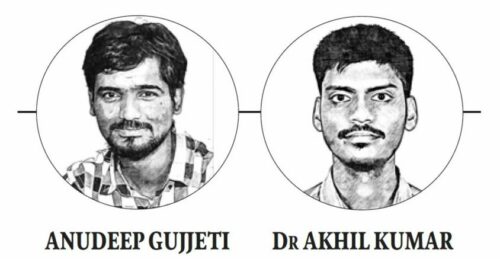
(Dr Akhil Kumar is a PhD from Department of Political Science, University of Hyderabad. AnudeepGujjeti is a PhD candidate, Department of Political Science,University of Hyderabad, Research Associate, Council for Social Development, and Young Leader, Pacific Forum, US)
Related News
-
US Universities urge international students to return before Trump’s 2025 inauguration amid travel ban fears
-
President-elect Trump transfers close to $4 billion worth Trump Media shares to trust
-
Trump threatens to impose reciprocal tax on India
-
New York state judge lets Trump’s conviction in hush money case stand; Rejects possible presidential immunity
-
Cartoon Today on December 25, 2024
2 hours ago -
Sandhya Theatre stampede case: Allu Arjun questioned for 3 hours by Chikkadpallly police
3 hours ago -
Telangana: TRSMA pitches for 15% school fee hike and Right to Fee Collection Act
3 hours ago -
Former Home Secretary Ajay Kumar Bhalla appointed Manipur Governor, Kerala Governor shifted to Bihar
3 hours ago -
Hyderabad: Organs of 74-year-old man donated as part of Jeevandan
3 hours ago -
Opinion: The China factor in India-Nepal relations
4 hours ago -
Editorial: Modi’s Kuwait outreach
4 hours ago -
Telangana HC suspends orders against KCR and Harish Rao
4 hours ago

